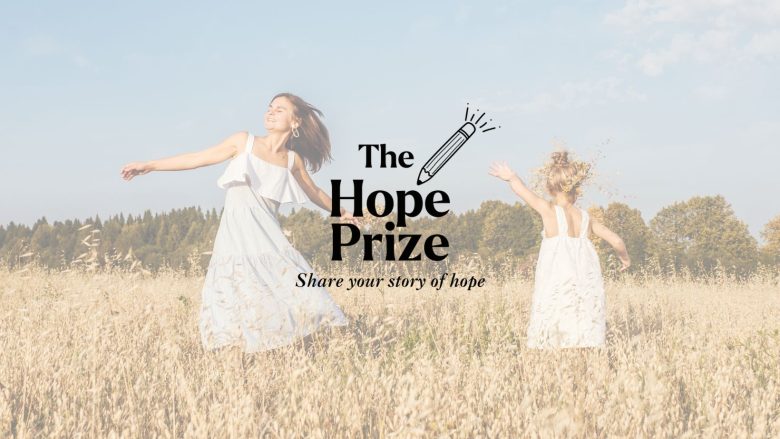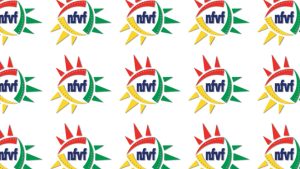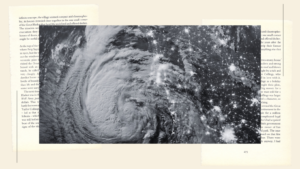At the beginning of this year, I wrote a short film called ‘Read My Lips’, and it focused on the art of lipreading and just how difficult it really is. It made me think of my own life and the significant role that lipreading played in it.
I wrote this essay and submitted it to The Hope Prize Competition. Unfortunately, my essay didn’t make the short list. Nevertheless, I am still proud of it, and I immensely enjoyed writing it.
*
I am two years old. My parents’ worlds come crashing down the day they find out I am profoundly deaf. My world is silent, while the world around me bustles and moves on with noises, sounds, and conversations. I am a curious, energetic, and busy child. How could my parents have known their little girl couldn’t hear anything?
The first time my hearing aids are switched on, my eyes light up. I don’t remember this event, but I remember what happens afterward. My father lifts me upon his broad, muscular shoulders, and we walk down a bright, yellow hallway to the hospital cafeteria. For the first time since my diagnosis, I can feel that he is proud of me and has hope for me again.
My parents make the crucial choice to integrate me into their hearing world through speaking and lip-reading. Every day, I sit next to my mom. I look at her face as she forms the words with her lips. Vowels are visual, which makes them easily accessible. But consonants tend to play hide-and-seek and jump all over her face. I feel my mom’s cheeks with my tiny hands, my fingers pressing against her throat, and I watch her every move. I am hungry to learn and grasp this unfamiliar world of language around me. ‘Ma’ and ‘Pa’ look and sound exactly the same to me. Most of the time, I simply guess which one it is. I then repeat what she says out loud. Every day, I learn new words, sounds, and communication methods.
I am seven years old. My father establishes and opens up a hearing school just for me. This school is in English, which is not my native tongue, but I quickly pick it up. Turns out, languages are my strong suit. My childhood is a happy one, albeit most of the memories are a blur. It’s because this is the phase in my life where I am still learning to master the art of lip-reading. I concentrate and focus as much as I can. I have to ask my friends and teachers to repeat themselves often. Some will over-enunciate their words as if miming and stretching the form of the words. It’s funny to watch, so I must keep my composure and not laugh. But it helps me understand what’s going on. Some days are easier than others. Lip-reading forces my eyes to become my ears, and doing it all the time is quite exhausting.
I have a recurring nightmare. All around me, everything is white—the walls, the stairs, the ceiling—all bright white. I walk up a spiral staircase, which has no end in sight. I climb the stairs the whole night. When I wake up in the mornings, I’m exhausted. It feels like a marathon, those white stairs with no end in sight.
I have another dream which will haunt me for years. I am walking in a golden field, and a beautiful, confident woman is holding my hand. She looks down at me and smiles. I don’t know who she is, but this dream is significantly important. It’s as if she’s saying, ‘Hold on, little girl. Hope is coming.’
I am fourteen years old. Due to a series of events, I’m not wearing hearing aids anymore. My world is now of total silence—no, not silence, for silence is still a frequency. It’s a world full of nothingness. I’m a teenager, armed and ready to conquer the hearing world. I have mastered the art of lip-reading. It is now my superpower—until it is not.
A jealous school bully makes me the target of her self-hatred. She knows I rely entirely on lip-reading to make sense of the hearing world, so she uses my power against me. She covers her mouth when she speaks and teaches the others in school to do the same. ‘This way, you can’t eavesdrop on what we say,’ she says. I am powerless and hopeless against her logic.
In my dreams, I am too tired to lip-read. Everything is a blur, and I can’t make out the faces of those around me. I try to scream, but no sounds escape. I am deaf and mute in both the hearing and dream worlds.
Youth camps are the worst. At night it’s horrible, for that’s when the fun starts for the hearing teens. I have no idea what’s going on. I spend most of my time alone in the black fields, sitting on a rock and looking at the moon. I wish the moon were full so that there could at least be a little bit of light shining on the teens’ faces. Darkness is my kryptonite.
I cry when I come home. Then my dad says, ‘Enough is enough.’ No more youth camps for me. I feel a flicker of hope; maybe I don’t need to do everything hearing people do. Perhaps I can set boundaries.
I feel like I’m the only one in the whole wide world who lives like me. There’s no other deaf kid like me who goes to a hearing school and functions in a hearing world. I feel entirely alone. In my search for identity and belonging in this world, I experience the Deaf culture for the first time. For the first time, I can relax and understand everything that’s going on around me. I pick up sign language quickly. It’s rare to feel this empowered, this relaxed. But I also know that the Deaf community isn’t my real home. My home is with my family, and my family is a hearing family. I have one foot in both worlds and do not belong anywhere.
I am nineteen years old. I finally finished high school, and I also wear hearing aids again. I do my gap year with a performing arts group. I make friends for the first time in years, and it’s friends that I understand easily. I get so good at hiding my deafness that some people in my group start to think that I am faking my hearing loss. It’s the greatest compliment of all, for it shows that I am adapting well to my hearing environment.
By the end of the year, I win a beauty pageant. I have become a motivational speaker, and the question I get the most is, ‘How did you learn to lip-read?’ I work out a neat little icebreaker where hearing people have to turn to each other and form their names with their lips without using their voices. The nervousness fills the room when they do that – hearing people have no idea what it’s like to look at other people’s lips, not their eyes like they usually do.
Now, hearing people think that lip-reading is cool… Truthfully, lip-reading is highly exhausting. How on earth did I have the strength in high school…? Oh wait, I didn’t. Insomnia, anxiety, suicidal thoughts, nightmares, and failing school marks showed that I hadn’t coped well at all.
The more I do these motivational talks, the more I hear stories of others like me who grew up in a hearing world. It turns out my story wasn’t that unique. I didn’t know of others who were like me. It would’ve helped so much if I had known of others like me. It would’ve given me the hope and courage to keep on trying and keep on living. Or it wouldn’t have made any difference at all.
I also compete in international beauty pageants, and my lip-reading skills enable me to bridge the gap between the hearing and deaf worlds. None of the other deaf girls can speak English with the hearing people; they only use sign language to communicate. Again, I am empowered to communicate with the hearing world and use sign language to act as an interpreter.
I am twenty-three years old. It’s time for a hearing aid upgrade, but the new ones on the market are no longer strong enough for my level of hearing loss. There’s only one option left: cochlear implants. It’s a huge decision, and it’s one that I have to make for myself. My desire to hear overcomes all doubt, obstacles, and resistance. I am hopeful that this step will enable me to hear even better than I did before.
After the operation, the implant gets switched on… but I hear nothing at all. That day, my parents and I walk out of that hospital. We all think the same thing: it’s been a colossal mistake.
It turns out that my brain has to learn and develop new pathways to hearing sounds. Two weeks later, my cat walks into my room. He does something he never did before: he looks at me and meows. It’s like a switch gets turned on, and my brain suddenly grasps it as an actual sound. For the first time in my life, I can hear things I’ve never heard before. The clock on the wall, dogs barking outside, my parents talking in the other room. My world of black and white slowly becomes color, then technicolor, then 3D effects. My world gets bigger, richer, lovelier. What I thought was the biggest mistake of my life became my best decision ever.
I have speech and listening therapy, which is highly exhausting but incredibly rewarding. It feels like things have come full circle again. Once again, I have lessons with my mother. She now sits behind me, and I lie on the couch. She reads words off a piece of paper, and I have to listen and repeat it back to her. It’s unbelievably scary not to have my lip-reading crutch with me. I stumble and fall as I have to retrain my brain to listen now instead of look. My eyes are closed, and my ears are open. I can hear consonants for the first time. At first, it’s just the words, then it becomes complete sentences.
My subconscious starts to believe that I can hear. In my dreams, I automatically want to lip-read people’s faces, but then I’m too tired to focus and concentrate. Then I remember I can now hear. I then close my eyes and listen to the sentences around me. I understand everything fully, and it’s so empowering. My eyes no longer have to do the job of my ears. My ears can now hear.
One night, I have the same dream I had when I was seven. I am walking in a golden field, except now I am the woman looking at the little girl. I smile at her, and she smiles at me. ‘Hope is here,’ the little girl says to me. Everything has now come full circle.
I am twenty-seven years old. I attend a school of ministry for nine months in the United States. Some days, I feel like I’m drowning in a class of 1,400. It’s a sea full of unfamiliar faces, lips, and accents. My cochlear implants are not perfect; I still have my struggles. I still use lip-reading as my default mechanism, and lip-reading is much easier for me in my native language.
I connect with the ones who are easier to understand and avoid those I don’t understand. There is an Australian guy who likes me, but I avoid him at all costs because I can’t grasp his accent. To this day, I wonder how it would’ve worked out if I had been able to understand him. I strive for connection, but I move away when I can’t understand.
Frustration builds up daily: we are 1,400 students, and I’ve never been to a school this big. I fight for my right to have reserved seats at the front, but it doesn’t always work. I feel lost again, struggling to understand everything that’s going on. The tears and frustration are real, but I still hold on to the hopes that I will somehow understand the world around me.
At my graduation, my father told my mom he should’ve given me ‘Hope’ as my second name. My grandmother and mother also have ‘Hope’ as their second name; why hadn’t he given me that name?
That same year, my father gets diagnosed with cancer. Before he passes away, I am in the hospital with him. I get a flashback of my first memory with him: him carrying me over his shoulders, always proud of me.
I am thirty-four years old. This is the year where I get to start all over again. Ten years ago, I had wanted to go to university. I had felt too overwhelmed with my level of hearing loss and my challenges in lip-reading. Now, I am confident in my hearing and lip-reading abilities. I can take on this new world.
However, I have an accident a few months before school starts: I fall down an unmanned hole in the pitch-black darkness one evening, and the whiplash affects my hearing. Sounds that used to be crystal clear now have a dull, underwater-like sound. I go to six specialists: the audiologist, the general practitioner, the physiotherapist, etc.
Classes start, and I have to rely solely on lip-reading again. But my superpower has slipped away from me throughout the years; I’m no longer a master at it. It’s like I lost the dear, precious friend that I never knew I had. Hearing with the cochlear implants has made me independent from lip-reading. And now I can’t hear with that either. And that scares me immensely. I do not have a backup plan anymore.
I go to the chiropractor, and we have the first breakthrough in months. Slowly, my hearing starts coming back again. I don’t take it for granted; I drink up the sounds around me.
My life is filled with many challenges and mountains that have to be conquered. As soon as I finish climbing a mountain before me, the next one appears on my horizon. Human connections, conversations, and languages are how I make sense of my world and the world around me. This is my world, and there will always be hope for me as long as I am in it.


